
Music performed a cappella, less commonly spelled a capella in English, is music performed by a singer or a singing group without instrumental accompaniment. The term a cappella was originally intended to differentiate between Renaissance polyphony and Baroque concertato musical styles. In the 19th century, a renewed interest in Renaissance polyphony, coupled with an ignorance of the fact that vocal parts were often doubled by instrumentalists, led to the term coming to mean unaccompanied vocal music. The term is also used, rarely, as a synonym for alla breve.

Evangelos Odysseas Papathanassiou, known professionally as Vangelis, was a Greek musician, composer, and producer of electronic, progressive, ambient, and classical orchestral music. He composed the Academy Award-winning score to Chariots of Fire (1981), as well as for the films Blade Runner (1982), Missing (1982), Antarctica (1983), The Bounty (1984), 1492: Conquest of Paradise (1992), and Alexander (2004), and the 1980 PBS documentary series Cosmos: A Personal Voyage by Carl Sagan.

Face the Music is the fifth studio album by Electric Light Orchestra (ELO). It was released in September 1975 by United Artists Records and on 14 November 1975 in the United Kingdom by Jet Records. The album moves away from the large-scale classical orchestrated sound of the previous album, Eldorado, in favour of more "radio-friendly" pop/rock songs, though the string sections are still very prominent. The new sound proved successful for the group, for Face the Music was the first ELO album to go platinum.
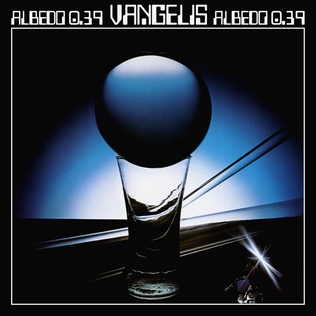
Albedo 0.39 is a studio album by the Greek electronic composer Vangelis, released in 1976. It was the second album produced by Vangelis in Nemo Studios, London, which was his creative base until the late 1980s. It contrasts with his previous album, Heaven and Hell, which was classically inspired and choral, while Albedo 0.39 has blues and jazz overtones. It was his first Top 20 UK album.

Heaven and Hell is a studio album by Greek electronic composer Vangelis, released in November 1975 on RCA Records. It is the first album recorded at his Nemo Studios in London that he used until 1987. It is a concept album based on duality.

Direct is a studio album by the Greek electronic composer Vangelis, released in 1988. The album marks a new development in Vangelis' music, during which Vangelis moved his creative base from London to Athens in Greece, and it was his first album recorded in Athens after relocation from London.

Spiral is a studio album by the Greek electronic composer Vangelis, released in December 1977. It was the third album produced by Vangelis in Nemo Studios, London, which was his creative base until the late 1980s. For the track "To the Unknown Man" Vangelis received the Midem International Instrumental award in 1978.

Opéra Sauvage is a soundtrack album by the Greek electronic composer Vangelis, released in 1979. It is the score for the nature documentary of the same title by French filmmaker Frédéric Rossif. It is considered one of Vangelis' best albums and is his second most successful album in the USA, reaching #42 in the album charts.
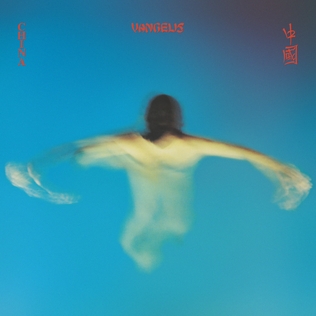
China is a studio album by the Greek electronic composer Vangelis, released in April 1979. Although he had never been to China, he employed Chinese instruments and compositional styles on this concept album. It was thematically ahead of its time as the eastern cultural concepts were mostly unknown to the western audiences. The album received some critical praise. It was certified silver (1985) for sales of over 60,000 copies by BPI.

See You Later is an album by the Greek electronic composer Vangelis, released in November 1980. It breaks quite violently with the style he employed in the late 1970s and later, relying much more on vocals and being more experimental and returning to his early 1970s work like Earth or 666. It was never released in the United States, until it was remastered in 2016 as part of the Delectus boxset.
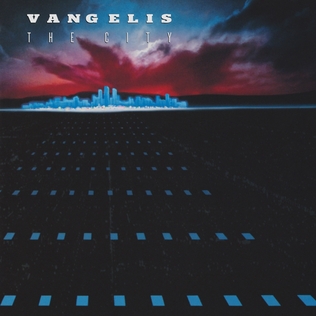
The City is a 1990 album by the Greek artist Vangelis. Reportedly, it was produced entirely in a Rome hotel room, where Vangelis was staying to witness the filming of the Roman Polanski film Bitter Moon. It can be seen as a concept album, citing concepts from urban life and alluding to the big city atmosphere. The album peaked at #3 on the Billboard New Age Albums chart.
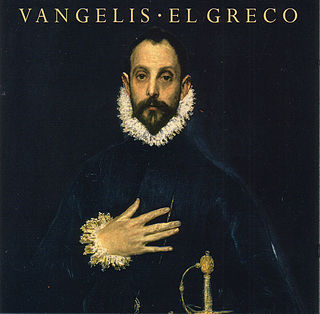
El Greco is a 1998 classical album by Greek electronic composer and artist Vangelis. The title is a reference to the man who inspired the composition, Dominikos Theotokópoulos, the painter and sculptor of the Spanish Renaissance. It consists of ten long movements performed on electronic instruments.
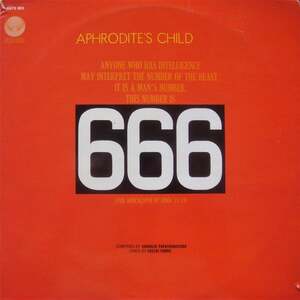
666 is the third and final studio album and only double album by Greek progressive rock band Aphrodite's Child, released in June 1972 by Vertigo Records. An ambitious double-LP concept album, ostensibly an adaptation of Biblical passages from the Book of Revelation, 666 was composed by keyboardist Vangelis and lyricist Costas Ferris.
Mythodea — Music for the NASA Mission: 2001 Mars Odyssey is a choral symphony by Greek electronic composer and artist Vangelis. It premiered as a single concert in Athens, Greece, in 1993 but a recording was only released in 2001 by Vangelis' then new record label Sony Classical, which also set up the NASA connection and promoted a new concert, this time with a worldwide audience.

Contact is the eleventh studio album by the American vocal group The Pointer Sisters, released in 1985 by RCA Records.

Soil Festivities is a studio album by the Greek electronic composer Vangelis, released in October 1984.

Chariots of Fire is a 1981 musical score by Greek electronic composer Vangelis for the British film Chariots of Fire, which won four Academy Awards including Best Picture and Original Music Score.

Foros Timis Ston Greco is a classical album by Greek electronic composer and artist Vangelis. The title is an allusion to the man who inspired the composition, Dominikos Theotokópoulos, the Cretan-born painter and sculptor better known as El Greco.

Alexander is the original film score of the film Alexander (2004), scored by Greek electronic composer Vangelis. It received the Public Choice Award at the 2005 World Soundtrack Academy.

Uncut Gems is a soundtrack album by electronic musician Daniel Lopatin, containing the original score for the Safdie brothers' 2019 film Uncut Gems. It was released via Warp on December 13, 2019. It received positive reviews from critics. It peaked at number 44 on the UK Soundtrack Albums Chart.



















